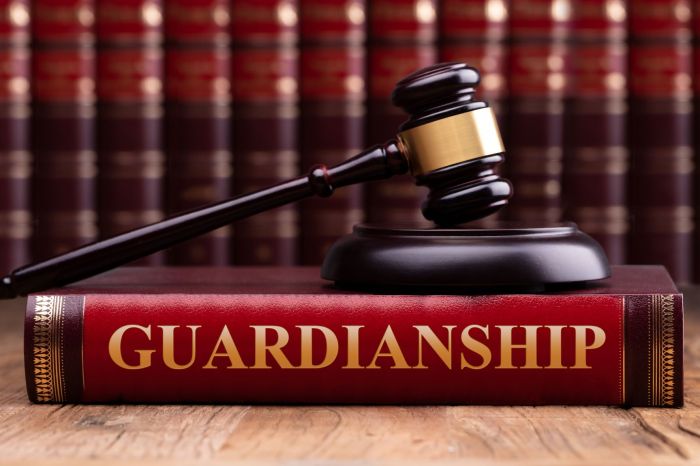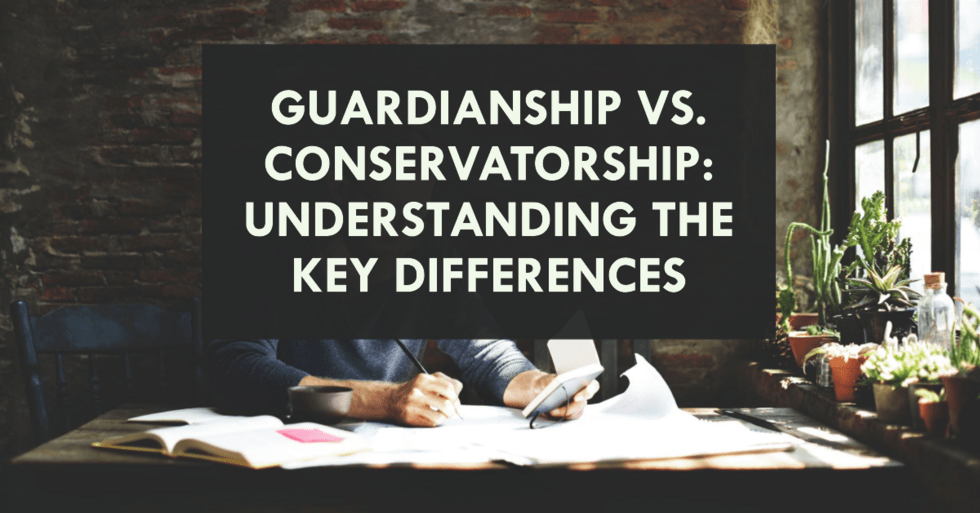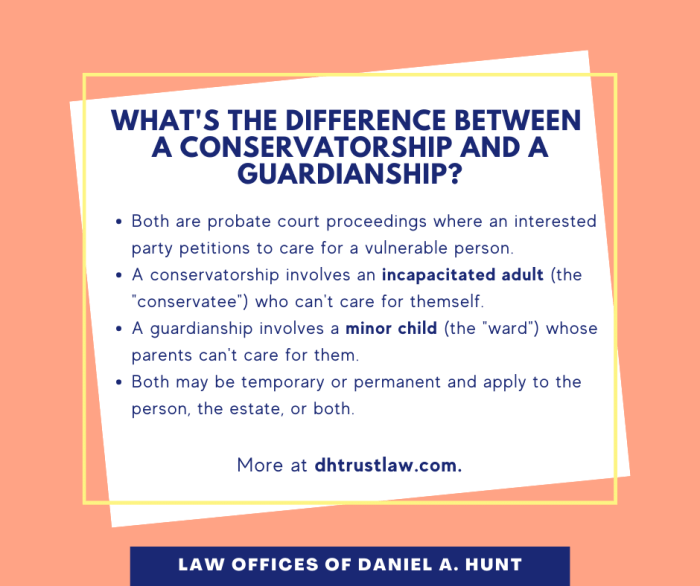Guardianship and conservatorship law is a crucial legal framework that safeguards the well-being of individuals who are unable to manage their own affairs. This area of law addresses situations where individuals, due to age, illness, or disability, require legal assistance to make decisions regarding their personal lives and finances. The legal system provides a structure for appointing guardians and conservators to act in the best interests of those who need protection.
Guardianship and conservatorship laws vary by jurisdiction, but generally, they establish procedures for determining the need for such legal interventions, the responsibilities of guardians and conservators, and the rights of the individuals under their care. These legal processes are designed to ensure that vulnerable individuals receive the necessary support and protection while preserving their rights and autonomy to the greatest extent possible.
Grounds for Guardianship and Conservatorship

Also Read
Guardianship and conservatorship are legal arrangements that allow a court to appoint a person to make decisions for another individual who is unable to do so themselves. This is often necessary when someone is incapacitated due to age, illness, or disability. The grounds for establishing guardianship or conservatorship vary depending on the jurisdiction, but generally involve demonstrating that the individual in question lacks the capacity to make decisions for themselves.
Legal Criteria for Establishing Guardianship or Conservatorship
The legal criteria for establishing guardianship or conservatorship are designed to ensure that the individual in question is genuinely unable to make decisions for themselves and that the appointment of a guardian or conservator is in their best interests. This usually involves demonstrating that the individual is incapacitated, meaning they lack the mental capacity to make decisions about their own care, finances, or other important matters.
Process for Filing a Petition for Guardianship or Conservatorship
The process for filing a petition for guardianship or conservatorship typically involves the following steps:* Filing a Petition: The person seeking to be appointed as guardian or conservator must file a petition with the court, outlining the reasons why guardianship or conservatorship is necessary.
Notice and Hearing
Guardianship and conservatorship law, while often associated with personal matters, can also have implications for business formation. For example, if a business owner becomes incapacitated, the legal framework surrounding these issues can determine who manages the business, potentially affecting its future. Navigating these complexities requires expert legal advice, such as that offered by Anderson Beakley Law, Business Formation Legal Advice Navigating the Legal Landscape , which can help ensure smooth transitions and protect the interests of all parties involved.
Understanding the legal landscape surrounding guardianship and conservatorship is essential for any business owner, especially those seeking to create a sustainable and enduring enterprise.
The court will issue notice of the petition to the individual subject to the guardianship or conservatorship, as well as any other interested parties, such as family members or close friends. A hearing will be held to allow all parties to present evidence and arguments.
Guardianship and conservatorship law, while focused on personal and financial well-being, often intersects with complex legal issues that extend beyond the courtroom. For instance, understanding the intricacies of travel for individuals under guardianship or conservatorship can be a challenging task, especially when navigating the complex world of airport operations. A comprehensive understanding of the legal framework governing airport operations, which can be found at Airport Operations Law Navigating the Complexities of Air Travel , is crucial for ensuring smooth and compliant travel for those under guardianship or conservatorship.
Evaluation
The court may order an evaluation of the individual’s mental capacity by a qualified professional, such as a doctor or psychologist.
Decision
Based on the evidence presented, the court will decide whether to grant the petition for guardianship or conservatorship. If the petition is granted, the court will appoint a guardian or conservator and Artikel their specific responsibilities.
Evidence Required to Support a Petition
The specific evidence required to support a petition for guardianship or conservatorship will vary depending on the jurisdiction and the specific circumstances of the case. However, common types of evidence include:* Medical Records: Medical records documenting the individual’s diagnosis, treatment, and prognosis can be used to demonstrate the individual’s incapacity.
Expert Testimony
Testimony from qualified professionals, such as doctors, psychologists, or social workers, can be used to provide expert opinions on the individual’s mental capacity.
Personal Observations
Personal observations from family members, friends, or other individuals who have interacted with the individual can be used to provide insights into the individual’s behavior and ability to make decisions.
Financial Records
Financial records can be used to demonstrate the individual’s ability to manage their finances.
Affidavits
Affidavits from witnesses can be used to provide sworn statements about the individual’s capacity.
It is important to note that the burden of proof in a guardianship or conservatorship case is typically on the petitioner. This means that the petitioner must present sufficient evidence to convince the court that the individual is incapacitated and that guardianship or conservatorship is necessary.
Guardianship and conservatorship law often involves complex financial matters, including the management of assets. In the realm of aviation, securing financing for an aircraft can be a significant undertaking, and understanding the legal intricacies is paramount. For comprehensive guidance on aircraft financing, explore Aircraft Financing Legal Advice A Guide to Navigating the Skies. Just as navigating the skies requires meticulous planning, navigating the legal landscape of guardianship and conservatorship requires a skilled legal professional to ensure the protection of assets and the well-being of those under their care.
The Role of the Guardian or Conservator

Guardians and conservators play a crucial role in protecting the well-being and interests of individuals who are unable to care for themselves due to age, illness, or disability. Their responsibilities encompass both personal and financial aspects, ensuring the ward’s safety, health, and financial security.
Responsibilities and Powers
Guardians and conservators are granted specific legal powers and responsibilities by the court. These powers are designed to protect the ward’s best interests and allow the guardian or conservator to make decisions on their behalf.
Guardianship and conservatorship law are complex areas that require a skilled legal professional to navigate. These legal frameworks can be vital for protecting individuals who may be unable to manage their own affairs, but understanding the nuances of these laws can be challenging. For comprehensive legal guidance, Business Law Attorney Your Guide to Legal Success can provide valuable insights into the intricacies of guardianship and conservatorship law.
Whether you need to establish a guardianship or understand your rights as a conservator, a dedicated legal team can ensure your interests are protected and your legal journey is as smooth as possible.
- Personal Care: Guardians are responsible for the ward’s physical care, including their health, housing, education, and overall well-being. This may involve making decisions about medical treatment, arranging for housing, and ensuring the ward receives appropriate education or training.
- Financial Management: Conservators are responsible for managing the ward’s financial affairs. This includes collecting income, paying bills, investing assets, and ensuring that the ward’s financial needs are met. Conservators must act in the ward’s best financial interests and avoid conflicts of interest.
- Legal Representation: Guardians and conservators may be authorized to represent the ward in legal matters, such as signing contracts, filing lawsuits, or making decisions about property.
- Decision-Making: Guardians and conservators have the authority to make decisions about the ward’s care and well-being, even if the ward is capable of expressing their own wishes. However, they must consider the ward’s preferences and abilities whenever possible.
Limitations on Authority
While guardians and conservators have significant powers, their authority is not absolute. Their actions are subject to legal limitations and oversight.
- Best Interests Standard: All decisions made by guardians and conservators must be in the ward’s best interests. This means they must act in a way that promotes the ward’s well-being and safety, even if it conflicts with the ward’s wishes.
- Court Supervision: Guardians and conservators are subject to court supervision. They must file regular reports with the court, accounting for their actions and the ward’s well-being. The court can intervene if it believes the guardian or conservator is not acting in the ward’s best interests.
- Limited Powers: Guardians and conservators have limited powers. They cannot make certain decisions without court approval, such as selling the ward’s property or making major changes to the ward’s living arrangements.
- Ward’s Rights: Despite being under guardianship or conservatorship, the ward still retains certain rights, such as the right to vote, marry, and make some personal decisions. The guardian or conservator must respect these rights to the extent possible.
Managing Finances and Personal Affairs
Guardians and conservators have a significant responsibility to manage the ward’s finances and personal affairs effectively and ethically.
- Financial Management: Conservators must maintain accurate records of all income and expenses. They are responsible for paying bills on time, investing assets wisely, and ensuring that the ward’s financial needs are met. They must also avoid conflicts of interest and prioritize the ward’s best financial interests.
- Personal Care: Guardians are responsible for the ward’s physical and emotional well-being. This includes providing for their basic needs, such as food, clothing, and shelter. They must also ensure the ward receives appropriate medical care, education, and social activities. They must also consider the ward’s preferences and abilities when making decisions about their care.
- Transparency and Accountability: Guardians and conservators must be transparent and accountable in their actions. They must provide regular reports to the court, detailing their decisions and the ward’s well-being. They must also be prepared to justify their actions if challenged by the ward or other interested parties.
Rights of the Ward

A person under guardianship or conservatorship, referred to as the “ward,” retains certain fundamental legal rights, though these rights may be limited depending on the specific terms of the guardianship or conservatorship order. It’s important to understand these rights and the procedures for challenging or terminating such orders.
Challenging a Guardianship or Conservatorship Order
A ward may challenge a guardianship or conservatorship order if they believe it is no longer necessary or that it violates their rights. The process for challenging an order typically involves filing a petition with the court that issued the original order. The petition should clearly state the grounds for the challenge, such as:
- The ward has regained the capacity to make their own decisions.
- The guardian or conservator is abusing their authority or failing to act in the ward’s best interests.
- The guardianship or conservatorship order was obtained through fraud or misrepresentation.
The court will then schedule a hearing to consider the petition. The ward will have the opportunity to present evidence and argue their case, while the guardian or conservator will have the opportunity to respond. The court will ultimately decide whether to modify or terminate the guardianship or conservatorship order.
Terminating a Guardianship or Conservatorship, Guardianship and conservatorship law
A guardianship or conservatorship order may be terminated under various circumstances. The most common reasons include:
- The ward’s capacity to make their own decisions has been restored.
- The guardian or conservator has died or is no longer able to serve.
- The ward reaches the age of majority, which is typically 18 years old.
- The court determines that the guardianship or conservatorship is no longer necessary.
To terminate a guardianship or conservatorship order, a petition must be filed with the court. The court will then schedule a hearing to determine whether the termination is appropriate.
Considerations for Guardianship and Conservatorship: Guardianship And Conservatorship Law
Guardianship and conservatorship proceedings are complex and sensitive, involving significant legal and ethical considerations. It is crucial to understand the implications of these arrangements and to ensure that they are established and managed in a way that protects the rights and well-being of the ward.
Ethical Considerations
Ethical considerations are paramount in guardianship and conservatorship proceedings. These arrangements involve a significant shift in power and control over an individual’s life. It is essential to ensure that the process is conducted with utmost respect for the ward’s autonomy, dignity, and rights. This includes:
- Respecting the Ward’s Wishes: Guardians and conservators should strive to understand and respect the ward’s wishes and preferences whenever possible, even if they differ from their own. This may involve considering the ward’s expressed desires, past choices, and values.
- Promoting the Ward’s Well-being: The primary goal of guardianship and conservatorship is to protect the ward’s well-being. This includes physical, emotional, and financial safety, as well as ensuring access to essential services and care.
- Minimizing Intrusion: Guardians and conservators should intervene in the ward’s life only when necessary, minimizing intrusion into their personal decisions and affairs. The goal is to provide support and guidance, not to take over their life.
- Transparency and Accountability: Guardians and conservators must be transparent in their actions and accountable to the court and the ward. This involves providing regular reports on the ward’s well-being and financial status, as well as seeking court approval for significant decisions.
Benefits and Drawbacks of Different Types of Guardianships and Conservatorships
The type of guardianship or conservatorship established can vary depending on the specific needs and circumstances of the ward. Different types of arrangements offer varying levels of control and responsibility.
- Full Guardianship: This type of guardianship grants the guardian broad authority over the ward’s person and property, including the power to make decisions about their education, medical care, and finances. While this offers comprehensive protection, it also carries the potential for abuse or overreach.
- Limited Guardianship: This type of guardianship provides the guardian with authority over specific aspects of the ward’s life, such as medical decisions or financial management. It is often chosen when the ward needs assistance with specific areas but retains autonomy in other aspects of their life. This arrangement balances support with independence.
- Conservatorship: Conservatorship typically focuses on managing the ward’s financial affairs. The conservator is responsible for managing assets, paying bills, and making financial decisions. This arrangement is appropriate for individuals who require assistance with financial management due to mental or physical limitations.
Steps Involved in Establishing Guardianship or Conservatorship
Establishing guardianship or conservatorship is a legal process that typically involves the following steps:
| Step | Description |
|---|---|
| 1. Petition Filing | The individual seeking guardianship or conservatorship files a petition with the court, outlining the reasons for the request and the proposed terms of the arrangement. |
| 2. Notice and Hearing | The court will issue a notice to the ward, their family, and any other relevant parties, informing them of the petition and scheduling a hearing. |
| 3. Investigation and Evaluation | The court may order an investigation or evaluation to assess the ward’s capacity and needs, as well as the suitability of the proposed guardian or conservator. |
| 4. Hearing and Decision | At the hearing, all parties involved will have an opportunity to present their arguments and evidence. The court will then make a decision on whether to grant the guardianship or conservatorship and determine its specific terms. |
| 5. Appointment and Supervision | If the court approves the petition, it will appoint the guardian or conservator and provide them with instructions and supervision. |
Navigating the complexities of guardianship and conservatorship law requires a thorough understanding of the legal framework, the rights and responsibilities involved, and the available resources. This area of law is often sensitive and emotionally charged, making it essential to seek legal guidance from experienced professionals. Whether you are a potential guardian, a conservator, or an individual seeking legal protection, understanding the legal processes and available options is crucial to ensuring the well-being of those who need it most.



